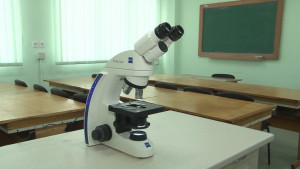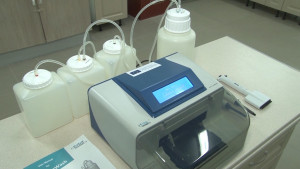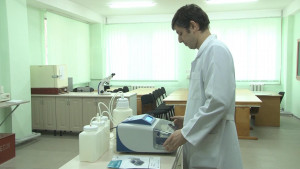Strategic Partnerships
Strategic Partnerships are transnational projects designed to develop and share innovative practices and promote cooperation, peer learning, and exchanges of experiences in the fields of education, training, and youth.
Overall, strategic partnerships aim to address horizontal priorities as well as field specific priorities in the areas of:
- Higher education
- Vocational education and training
- School education
- Adult education, and
- Youth
There are two kinds of Strategic Partnership; those supporting innovation and those supporting the exchange of good practices.
What are the opportunities?
Strategic Partnerships provide opportunities for a wide variety of public, private, and non-governmental organisations to implement a broad range of activities including, for example:
- Strengthening cooperation and networking between organisations,
- Promoting the development, testing, and implementation of innovative practices,
- Promoting the recognition and validation of knowledge, skills, and competences,
- Promoting cooperation between regional authorities to develop new systems for education, training, and youth,
- Supporting learners with disabilities and special needs and ease their transition to the labour market,
- Supporting education and training professionals to promote equity, diversity, and inclusion in learning,
- Promoting integration of newly arrived migrants and raising awareness about the refugee crisis in Europe
- Promoting entrepreneurship and active citizenship among young people.
Strategic Partnerships can be of different sizes and conduct different activities depending on the objective of the project, the organisations involved, the expected impact, and other elements.
Within the scope of the project’s objectives, there are also opportunities for pupils, students, learners, and staff to learn, be trained, or to teach abroad, insofar as these transnational teaching, training and learning activities contribute to the achievement of the project’s objectives.
Link to the web-site: http://ec.europa.eu/programmes/erasmus-plus/about_en
Knowledge Alliances
Knowledge Alliances are transnational projects which bring higher education institutions and business together to work on common issues.
The overall aim is to help strengthen Europe’s capacity to innovate and to support the modernisation of Europe’s higher education systems.
Knowledge Alliances focus on one or more of the following:
- developing new, innovative, and multidisciplinary approaches to teaching and learning,
- stimulating entrepreneurship and the entrepreneurial skills of higher education and company staff,
- exchanging knowledge and working together on new solutions.
What is the opportunity?
Knowledge Alliances offer the opportunity for organisations to develop a project that contributes to one of the focus areas above. They are open to any discipline and sector, as well as cross-sectoral cooperation.
The partners of a Knowledge Alliances share common goals and work together towards mutually beneficial results and outcomes.
Examples of areas that can be supported include:
- Boosting innovation in higher education and business,
- Developing entrepreneurship and skills
- Stimulating the flow and exchange of knowledge between higher education and business.
Link to the web-site: http://ec.europa.eu/programmes/erasmus-plus/opportunities/knowledge-alliances_en
Capacity building (higher education)
Capacity-building projects in the field of higher education are transnational cooperation projects, based on multilateral partnerships, primarily between higher education institutions from Programme and eligible Partner Countries.
The aim of these projects is to support eligible Partner Countries to:
- modernise, internationalise and increase access to higher education
- address the challenges facing their higher education institutions and systems
- increase cooperation with the EU
- voluntarily converge with EU development in higher education, and
- promote people to people contacts, intercultural awareness, and understanding.
This is carried out in the context of two key policy documents and the policy defined by four complementary financing instruments;
- Increasing the Impact of EU Development Policy: An Agenda for Change,
- European Higher Education in the World.
- the European Neighbourhood Instrument
- the Development Cooperation Instrument
- the Instrument for Pre-Accession Assistance, and
- the European Development Fund
What are the opportunities?
Erasmus+ provides the opportunity for organisations from eligible Partner Countries, mainly higher education institutions (HEIs), to promote cooperation through actions that:
- improve the quality of higher education and its alignment with labour market needs,
- improve the level of skills in HEIs through new education programmes,
- strengthen the capacity of management, governance, and innovation, as well as internationalisation,
- build the capacity of national authorities to modernise their own higher education systems, and
- foster regional integration and cooperation across different regions of the world.
Capacity building projects typically focus on one of three main activities:
- curriculum development activities
- modernisation of governance and management of HEIs and systems
- strengthening of relations between higher education and the wider economic and social environment
Organisations can choose from two types of projects:
- Joint projects, which aim to support organisations from partner countries (i.e. through curriculum development, modernisation of management, etc.), and
- Structural Projects, which aim to strengthen higher education systems and promote reforms at national and/or regional level.
More information on the field-specific priorities is available in the Programme Guide.
Odessa National Academy of Food Technologies is a participant of the Capacity building project “Improving skills in laboratory practice for agrо-food specialists in eastern Europe» (Ag-Lab) 586383-EPP-1-2017-1-SI-EPPKA2-CBHE-JP
Materials of the project ONAFT
Еnzyme-linked immunosorbent assay
REPORTS
ONAFT annual report 2018_compressed (1)
Стаття в газеті Технолог від 20.04.2020_compressed
Стаття в газеті Технолог від 20.12.2018_compressed
Презентація проекту на Ярмарці Вакансій 07.11.2019
Here you can find some additional information about ERASMUS+PROJECT: AG-LAB
For more useful information about KA2 go to the links:
National Erasmus + office-Ukraine http://erasmusplus.org.ua/erasmus/ka2-proekty-spivpratsi.html
Erasmus+ Official Website http://ec.europa.eu/programmes/erasmus-plus/opportunities/organisations/innovation-good-practices_en
Project News: AgLab Newsletter #3




